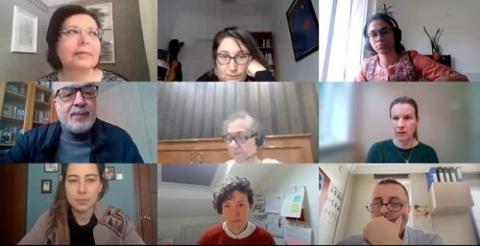A new research collaboration is established under the School of Social Sciences and Global Studies

Emerging economies of the global South appear to have contrasting patterns with regards to the movement of labour from agriculture to non-agricultural sectors. While the majority of women’s employment in East Asia & Pacific, Latin America & Caribbean, and Southern & Western Africa has shifted towards non-agricultural sectors before or around the same time as that of men’s, South Asia, Middle East & North Africa, and Middle & Eastern Africa have historically been marked with significant gender gaps in labour migration from agriculture to non-agricultural employment. Why do some developing economies have gender gaps in the movement of labour, while others do not? What explains gender gaps in the movement of labour from agriculture to non-agricultural sectors? Drawing on the cases of India, Pakistan, Bangladesh, Turkey, Egypt and Morocco, a research network led by Dr Ece Kocabıçak, Lecturer in Sociology, has been established to answer these questions. As well as members of academia, representatives of non-governmental organisations and grassroots based in the above list of countries have joined the network.
The research network has, thus far, organised an online workshop on 6th April 2022. The workshop was chaired by Isabel Llewellyn, IDII ODA Partnership Manager. The opening speech of Professor Umut Erel, Head of the Centre for Global Challenges and Social Justice, was followed by the presentations of keynote speakers. The possible barriers to women’s access to paid employment in non-agricultural sectors, the country specific dynamics, and global factors were discussed by the keynote speakers, namely Dr Asad Sayeed (the Collective for Social Science Research), Professor Selim Raihan (University of Dhaka), Dr Anjana Thampi (O. P. Jindal Global University), Dr Ghada Barsoum (the American University in Cairo), Dr Dina Najjar (ICARDA), and Dr Ayşegül Kayaoğlu (Istanbul Technical University). The discussion continued with the contribution of team members, including Professor Haroon Akram-Lodhi (Trent University), Professor Massoud Karshenas (SOAS), Shilpa Vasavada (Working Group of Women and Land Ownership, India), Ume Laila Azhar (Homenet, Pakistan), Farzeen F. Alam and Keya Sharmin (Briddhi, Bangladesh), Jihad Ait Hssain and Hiba Elkhamal (Oxfam, Morocco), and Ertan Karabıyık, Hazan Öcal, Selin Ayaeş (Kalkınma Atölyesi, Turkey).
During the workshop, existing research on the low levels of female labour force participation was reviewed together with the limitations of the demand and supply side centred arguments. In light of this discussion, an early draft of a research proposal, written by Dr Ece Kocabıçak, was assessed. Particularly, her hypothesis that women’s exclusion from landownership in conjunction with the dominance of small landownership pattern gives rise to gender gaps in the movement of labour from agriculture to non-agricultural sectors was analysed. The team has decided to continue their collaboration addressing the above themes and question.
The next step will be a two days long workshop at The Open University in Milton Keynes. During this workshop, a limited number of network members will come together to continue the discussion and assess the second draft of research proposal. If you are interested in joining and contributing to the studies of this network, please contact Dr Ece Kocabıçak (Email [email protected])
